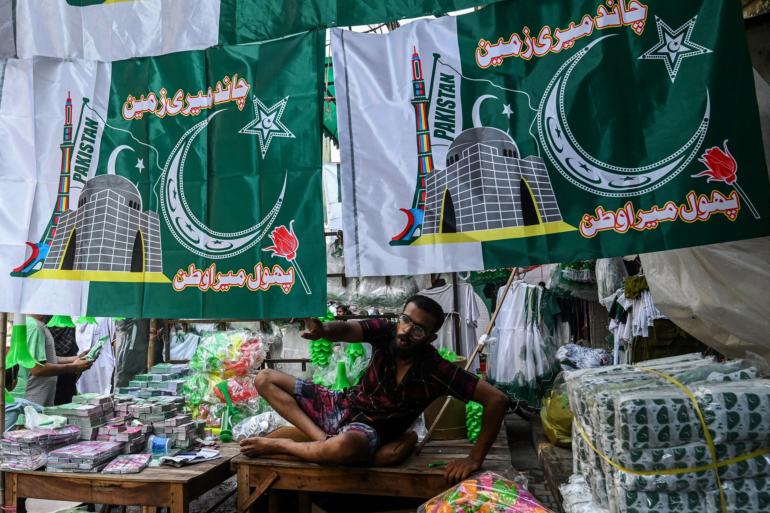In July, the IMF agreed to revive a six-billion-dollar bailout package for Pakistan.
The country has been embroiled in an economic and political crisis since the parliament ousted former Prime Minister Imran Khan in a no-confidence vote in April. The new government led by Shehbaz Sharif has had to make some tough concessions to meet the IMF demands including ending government subsidies on fuel and electricity. That’s led to public outrage over rampant inflation, soaring food and fuel prices and power outages.
Joining the discussion:
- Zoon Ahmed Khan is a Research Fellow with the Center for China and Globalization.
- Shuja Nawaz is a Distinguished Fellow and Former Director of the South Asia Center, Atlantic Council.
- Saira Asad is an award-winning columnist and Adjunct Assistant Professor at Riphah International University.
- Hasaan Khawar is a Pakistani politician and Additional Secretary of Information for PTI.
For more:
On the list of unfortunate economies that markets think might soon follow Sri Lanka into debt default and economic crisis, Pakistan sits near the top https://t.co/XHVuEnyVLt
— The Economist (@TheEconomist) August 10, 2022
Former #Pakistani Prime Minister Imran Khan has renewed his call for early elections after a stunning by-election upset saw his party take control of a crucial provincial assembly.https://t.co/OzEWHqjNiw
— Saudi Gazette (@Saudi_Gazette) July 18, 2022
 CGTN America
CGTN America
 A vendor sells Pakistan’s national flags at a stall ahead of country’s 75th Independence day celebrations in Lahore on August 6, 2022. (Photo by Arif ALI / AFP)
A vendor sells Pakistan’s national flags at a stall ahead of country’s 75th Independence day celebrations in Lahore on August 6, 2022. (Photo by Arif ALI / AFP)
